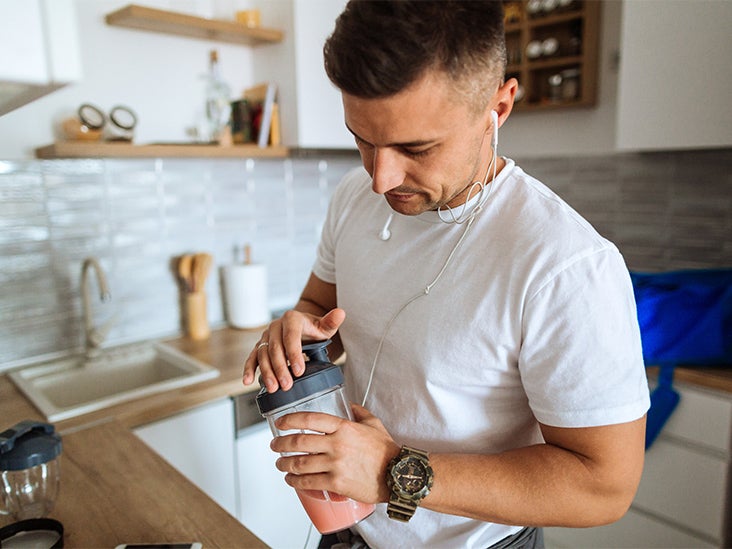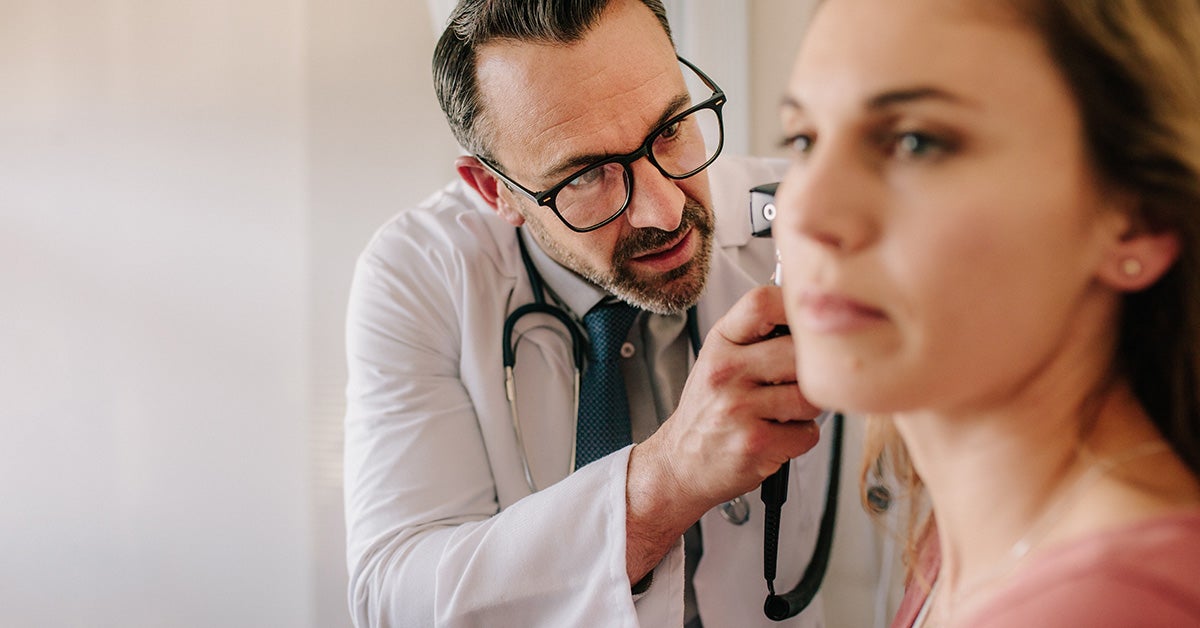Chest and Abdominal Pain: 10 Causes, Symptoms, and More
Chest pain and abdominal pain can occur together, in which case the timing of symptoms may be coincidental and related to separate problems. But sometimes, chest and abdominal pain are combo symptoms of a single condition.
Abdominal pain can feel like a sharp or dull pain that's intermittent or continuous. Chest pain, on the other hand, can feel like a tight, burning sensation in the upper abdomen or below the breastbone.
Some people also describe it as pressure or a jabbing pain that radiates to the back or shoulders.
The cause of chest and abdominal pain can be something minor — but this doesn't mean you should brush off discomfort as a minor annoyance.
Chest pain can also indicate a medical emergency, especially when accompanied by sweating, dizziness, or shortness of breath.
Common causes of chest and abdominal pain include:
1. Gas
Gas pain is commonly associated with stomach cramps, but some people feel gas pain in the chest and other parts of the body.
This type of pain can feel like tightness in the chest area. It might occur after eating a big meal or after eating certain foods (vegetables, gluten, or dairy). Other symptoms of gas include constipation and flatulence.
Passing gas or belching may help relieve discomfort.
2. Stress and anxiety
Stress and anxiety can also cause chest and abdominal pain.
Stomach pain caused by anxiety can feel like nausea or a dull ache. Severe anxiety can induce an anxiety or panic attack, causing sharp, stabbing pains in the chest.
Other symptoms of a panic attack include:
- restlessness
- excessive worrying
- rapid breathing
- fast heart rate
3. Heart attack
A heart attack occurs when a blockage interrupts blood flow to your heart. Symptoms vary from person to person, so it can be difficult to identify a heart attack.
A heart attack is a medical emergency, and you should seek immediate medical care or call 911.
Signs can include abdominal pain, as well as tightness or pain in the chest. Symptoms can strike suddenly or gradually over time. You may also experience:
- shortness of breath
- a cold sweat
- lightheadedness
- pain that radiates to the left arm
4. Gastroesophageal reflux disease (GERD)
GERD is a digestive disorder where stomach acid back flows into the esophagus. GERD can cause persistent heartburn, as well as nausea and abdominal pain.
Factors that trigger reflux disease include:
- eating large meals
- eating fatty or fried foods
- obesity
- smoking
Other symptoms of reflux disease include regurgitation, difficulty swallowing, and a chronic cough.
5. Peptic ulcer
Peptic ulcers are sores that develop on the lining of the stomach, causing:
- severe stomach pain
- heartburn
- chest pain
- bloating
- belching
Depending on the severity of the ulcer, some people also have bloody stools and unexplained weight loss.
6. Appendicitis
Appendicitis is inflammation of the appendix, which is a narrow hollow tube located in the lower right area of the stomach.
The purpose of the appendix is unknown. When it becomes inflamed, it can cause sudden abdominal pain that originates around the navel and travels to the right side of the stomach. Pain can also extend to the back and chest.
Other symptoms can include:
- bloating
- constipation
- fever
- vomiting
7. Pulmonary embolism
This is when a blood clot travels to the lungs. Symptoms of a pulmonary embolism include:
- shortness of breath with exertion
- the sensation that you're having a heart attack
- a bloody cough
You may also have leg pain, a fever, and some people experience abdominal pain.
8. Gallstones
Gallstones occur when deposits of digestive fluid harden in the gallbladder. The gallbladder is a pear-shaped organ situated on the right side of the stomach.
Sometimes, gallstones don't cause symptoms. When they do, you may have:
- stomach pain
- pain below the breastbone which could be mistaken for chest pain
- shoulder blade pain
- nausea
- vomiting
9. Gastritis
Gastritis is inflammation of the lining of the stomach. This can cause symptoms like:
- pain in the upper abdomen near the chest
- nausea
- vomiting
- a feeling of fullness
Acute gastritis resolves on its own. Chronic gastritis may require medication.
10. Esophagitis
This is inflammation in the tissue of the esophagus caused by reflux disease, medication, or an infection. Esophagitis symptoms include:
- chest pain below the breastbone
- heartburn
- difficulty swallowing
- stomach pain
What can cause chest and abdominal pain after eating?
Sometimes, this combo of symptoms only occurs after eating a meal, or during a meal. If so, the underlying cause could be:
- gas
- GERD
- esophagitis
- gastritis
In the case of gastritis, however, eating improves stomach pain in some people, and worsens stomach pain in others.
What can cause chest and right-side abdominal pain?
Do you have chest pain along with abdominal pain on the right side? One possible cause is appendicitis.
This organ is located on the lower right side of your abdomen. Gallstones can also cause pain on the right side of the stomach, typically near the upper portion of the abdomen.
What can cause abdominal pain and chest pain when breathing?
Possible causes of chest pain that worsens when breathing include:
- a heart attack
- appendicitis
- a pulmonary embolism
Treatment for this combo of symptoms depends on the underlying problem.
For gas
If you have chest and abdominal pain due to gas, taking an over-the-counter gas reliever can help ease tightness in your chest and stop stomach pain.
Check out more tips here.
For GERD, ulcers, esophagitis, and gastritis
Over-the-counter medications to neutralize or stop the production of stomach acid can relieve symptoms of GERD. These include:
- cimetidine (Tagamet HB)
- famotidine (Pepcid AC)
- nizatidine (Axid AR)
- ranitidine (Zantac).
Or, your doctor can prescribe medications like esomeprazole (Nexium) or lansoprazole (Prevacid).
Medications to block acid production can also help treat a peptic ulcer, esophagitis, and gastritis.
For gallstones and appendicitis
Treatment isn't necessary for gallstones that don't cause symptoms. For bothersome symptoms, your doctor can prescribe medication to dissolve the gallstones, or recommend surgery to remove the gallbladder.
Surgery to remove the appendix is necessary for appendicitis.
For pulmonary embolism and heart attack
You'll receive blood thinning medication and clot dissolvers for a pulmonary embolism, although your doctor may recommend surgery to remove a life-threatening clot.
Clot-busting medications are also first-line treatments for a heart attack. These medications can dissolve a clot and restore blood flow to your heart.
Healthier lifestyle choices help prevent some causes of chest and abdominal pain.
Some ways include:
- Reducing stress: Relieving some stress in your life could potentially alleviate extreme anxiety and panic disorders.
- Knowing your limits: Don't be afraid to say no and practice stress management techniques such as deep breathing or meditation to control your feelings and emotions.
- Eating slower: Eating slower, eating smaller meals, and avoiding certain types of food (such as dairy, fatty foods, and fried foods) may prevent symptoms of:
- reflux disease
- ulcers
- gastritis
- esophagitis
- Regular exercise: Losing weight and eating a healthy diet can also prevent heart disease, as well as reduce the risk of gallstones. Physical activity can even prevent blood clots that travel to the lungs.
- Following doctors orders: If you have a history of pulmonary embolism, taking blood thinners, wearing compression stockings, and keeping your legs elevated at night could prevent future clots.
Some chest and abdominal pain can be mild and resolve within minutes or hours, either on their own or with over-the-counter medication.
Discomfort caused by certain conditions might not require a doctor, such as:
- gas
- anxiety
- acid reflux
- gallstones
- an ulcer
You should see a doctor for symptoms that don't improve or worsen, or if you experience severe chest pain. Chest pain can be a symptom of a heart attack or a blood clot in the lungs, which are both life-threatening and medical emergencies.
Chest pain and abdominal pain can be a minor annoyance or a severe health concern.
Talk to your doctor about symptoms and don't hesitate to call 911 if you experience unexplained chest pain along with difficulty breathing.
-
 6 interesting genetic traits that children will inherit from their parents
6 interesting genetic traits that children will inherit from their parents
-
 7 effects of asparagus on child development
7 effects of asparagus on child development
-
 Does cutting blood hair for babies bring good luck?
Does cutting blood hair for babies bring good luck?
-
 The more babies eat, the higher the height they develop, especially the second kind
The more babies eat, the higher the height they develop, especially the second kind
-
 Children with chicken pox should eat to quickly recover from the disease, without leaving a deep scar?
Children with chicken pox should eat to quickly recover from the disease, without leaving a deep scar?
-
 The more food is cooked, the better it can be for health, especially the second type
The more food is cooked, the better it can be for health, especially the second type
-
 Can You Die from Sleep Apnea? Stats and Why Treatment Is Important
Can You Die from Sleep Apnea? Stats and Why Treatment Is Important
-
 Lemon for Face: Health Benefits, Side Effects, Uses, and Precautions
Lemon for Face: Health Benefits, Side Effects, Uses, and Precautions
-
 Creatine: Benefits, Risks & Does Taking Creatine Make You Fat
Creatine: Benefits, Risks & Does Taking Creatine Make You Fat
-
 Pressure in Ears Won't Go Away: How to Find Relief
Pressure in Ears Won't Go Away: How to Find Relief
-
 How Many Calories Does Planking Burn? Calories and Instructions
How Many Calories Does Planking Burn? Calories and Instructions
-
 Rebirthing Therapy: Safety, Technique, Bans, and More
Rebirthing Therapy: Safety, Technique, Bans, and More































